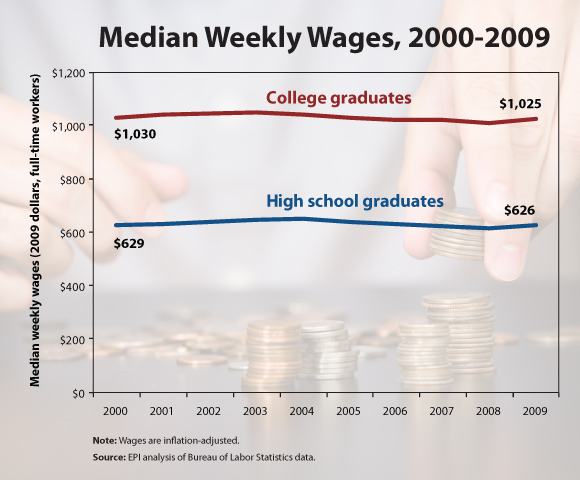Since 2000, America’s college graduates — like workers at nearly all levels of education — have seen wages, adjusted for inflation, stagnate. The Figure tracks the median inflation-adjusted weekly wages for high school and college graduates from 2000 to 2009. It shows that while college graduates earn more, wages for both groups have actually declined slightly since the year 2000. Median inflation-adjusted wages in 2000 were $629 per week for high school graduates and $1,030 per week for college graduates holding a bachelor’s degree but no advanced degree. Nine years later, median weekly wages stood at $626 for high school graduates and $1,025 for college graduates. For college graduates, the change equates to $1 per day less, based on a five-day work week. The Figure also shows that, contrary to popular assumptions, the wages of college graduates did not grow at a faster rate than for high school graduates.

It is important to note that this prolonged period of wage stagnation cannot be blamed on the current recession. Between 2002 and December of 2007, the country was in a period of economic expansion and for most of that time, from 2003 through 2007, wages fell. Wages had improved in the early part of the decade on the momentum of the rapid wage growth of the 1990s, but that progress was halted by the spike in unemployment during the 2001 recession, and never reestablished itself. Now, with unemployment expected to remain above 8% into 2012, it will likely be many years before college graduates — or any workers — see substantial wage growth.
